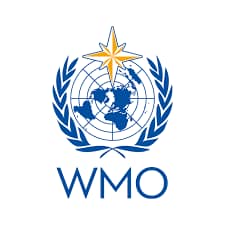As the World Meteorological Organization (WMO) marks 75th anniversary as UN specialized agency, WMO Secretary-General, Celeste Saulo has said that forecasts and early warnings have averted billions in economic losses even as he lamented that yet, almost half the world’s countries still lack access to these life-saving systems.
The WMO Secretary General in message to mark day with the theme; “Closing the Early Warning Gap Together” made available to journalists on Sunday said: World Meteorological Day is observed on 23 March each year. It showcases the essential contribution of National Meteorological and Hydrological Services to society and to building a safer, more resilient world.
“The staff of National Meteorological and Hydrological Services are like doctors and essential contribution of National Meteorological and Hydrological Services to society and to building a safer, more resilient world, nurses –working 24/7 to safeguard and promote public well-being,” said WMO
Secretary-General Celeste Saulo.
Continuing, he noted that; ““During the past 75 years, we have brought billions of dollars in added value to the global economy. We have saved billions more in averted economic losses from weather, Advances and Gaps climate and water-related hazards. And we have saved hundreds of thousands of lives.”
UN Secretary-General António Guterres in a message said; “WMO marks 75th anniversary as UN specialized agency
leisure activities to seasonal crop planting to multi-billion dollar infrastructure global economic and social well-being in an era of rapid change.
“This year marks the 75th birthday of the World Meteorological Organization (WMO).
WMO recently confirmed that 2024 was the hottest year on record.Ocean warming and “The theme of this year’s World Meteorological Day –Closing the Early Warning Gap Together–reminds us that, in this new climate reality, early warning systems are not luxuries. They are necessities and sound investments –providing an almost ten-fold progress –and gaps –in life-saving forecasts and early warnings, which are vital for United Nations specialized agency,which has overseen the free and unrestricted world safer, more secure, and prosperous. Droughts, and wildfires, sea level rise is accelerating.
“Glacier retreat and melting ice threaten long-term. Forecasts and early warnings have averted billions in economic losses.
Investment in national meteorological and hydrological services is a must
investments.World Meteorological Day on 23 March highlights the exchange of data, products, and services underpinning decisions ranging from daily at any time in its history. Extreme weather impacts are on the increase
changes.
“World Meteorological Day theme is Closing the Early Warning Gap Together, intensifying tropical cyclones, devastating rainfall, storm surges, flooding. WMO’s transformation of science into action for the global good is more necessary than
return.”
WMO and its partners in Early Warnings For All are now expanding support to additional communities, and a major effort to scale-up finance. Increasing the lending capacity of resources and collaboration.
“We need high-level political support for the Initiative within countries, a boost in
bilateral and multilateral donors, development banks, and climate funds to boost technology support, greater collaboration between governments, businesses and countries beyond the initial 30 focus countries and intensifying partnerships with the Multilateral Development Banks is key,” said Mr Guterres.
According WMI, between 1970 and 2021, global reported economic losses from weather, climate and water hazards were a staggering US$ 4.3 trillion. More than 2 million people died.
Economic costs continue to soar, but the death toll is falling.











